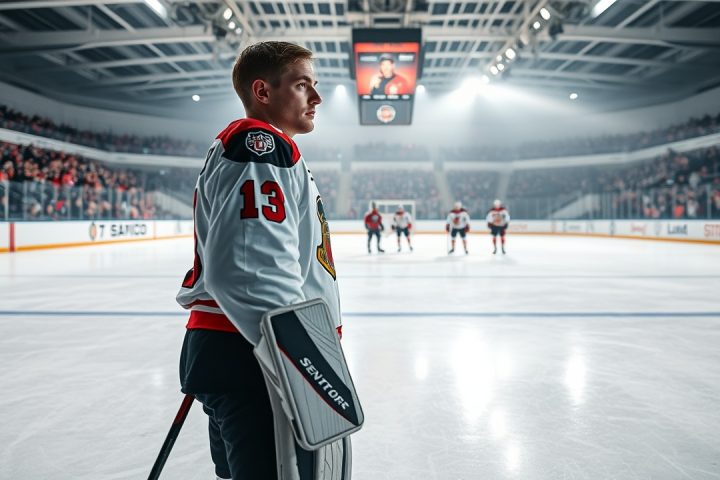Minor-League Hockey Players Visit Navy SEAL Base
In a remarkable exchange of experiences, a contingent of minor-league hockey players from the Minnesota Wild visited the Navy SEAL base in San Diego early this year, leading them to witness the intense Basic Underwater Demolition/SEAL (BUD/S) training, an experience that left them in awe. Trainees were seen enduring physically demanding tasks like navigating through sand and carrying boats on their heads while enduring freezing conditions of around 50 degrees Fahrenheit. Among the onlookers was 22-year-old David Spacek, a young player in the Wild’s system, who secretly longed for the ice instead of the challenging training displayed before them.
Inspiration Behind the Visit
The initiative for this immersive trip stemmed from Brett McLean, the head coach of the Wild’s AHL affiliate, aiming to provide his players with a unique perspective amidst a challenging start to their season. To solidify this opportunity, McLean reached out to Aaron Bogosian, the team’s human performance specialist and a former Navy SEAL, whose rare experience is both a source of inspiration and an advantageous resource for the franchise.
Though he maintains a low profile regarding his past, Aaron, who happens to be the brother of NHL defenseman Zach Bogosian, serves an essential role in assessing the character of young prospects, leveraging both his military background and personal experiences in sports. Through a blend of practical lessons and mindfulness techniques, he emphasizes the importance of mental fortitude.
“Many AHL players have the potential for the NHL, but it often hinges upon how far they are willing to push themselves,”
Aaron asserts.
Lessons from SEAL Training
As part of his philosophy, Aaron shares insights from his time in SEAL training, including wisdom gleaned from challenges such as ‘hell week’, as well as practical exercises for stress management, all aimed at cultivating resilience amongst young athletes. His approach has become increasingly relevant as sports franchises continue to incorporate the experiences of veterans to enhance team culture and leadership.
As Zach Bogosian highlighted, Aaron’s authenticity stems from his real-life experiences, devoid of theoretical approaches. This relatability makes him an impactful figure, especially given his vast knowledge of both military and sports dynamics. He draws parallels between the challenges faced in military life and those encountered in team sports, noting that both require collaboration, endurance, and a commitment to shared goals.
Impact on Young Athletes
During the visit to the Navy base, the players were exposed to the rigorous training environments faced by SEAL candidates. They were particularly struck by the concept of team commitment, exemplified by the bell trainees could ring to quit. Many players reflected on the collective spirit required in the face of adversity, a valuable lesson imparted by Aaron that day. Jesper Wallstedt, a goaltending prospect, noticed how the trainees relied on one another for motivation, stating,
“You don’t want to be the one to let down your teammates.”
The roots of Aaron’s philosophies on character date back to his childhood in Massena, New York, where he and his brothers grew up working in their family’s cleaning business. They learned early on the significance of hard work and perseverance, experiences that shaped their understanding of character. While Zach rose to prominence in the NHL, Aaron found success in his own right, playing professionally for several seasons in leagues like the AHL and ECHL, despite never reaching the NHL.
Aaron’s Transition and Mentorship
Aaron’s transition from hockey to military service was filled with motivations that aligned closely with his familiar upbringing in a family with a strong military legacy. After enduring the struggles of his hockey career, he joined the Navy SEALs, where he honed leadership and resilience skills that would later be instrumental in his role with the Wild’s player development.
In 2022, as he retired from military service, Aaron began to re-engage with hockey and took on a mentorship role for the Wild’s players while leveraging insights from both his military and athletic backgrounds. Early interactions with players during development camps saw him promoting growth mindsets and addressing the mental hurdles young athletes face on their journeys.
Carson Lambos, a key player, remembered an important lesson from Aaron about team responsibility during “hell week.” The phrase
“either you’re pulling the boat, or you’re carrying it”
resonated deeply with the young athletes, encouraging them to consider their contributions to team dynamics and to avoid being a hindrance.
Conclusion
Aaron supplements his military anecdotes with reflections from his NHL aspirations and his Bachelor’s and Master’s degrees in leadership. This educational background complements his hands-on experiences and reinforces his role as a mentor, helping young players adjust to the highs and lows of professional hockey.
His influence can be seen in players like Marco Rossi, who faced challenges after being sent down to the AHL. Aaron advised him to focus on daily improvement rather than getting disheartened by missed opportunities. Rossi, who has since thrived, credits Aaron for instilling a sense of purpose and encouraging a strong work ethic.
The Minnesota Wild organization recognizes Aaron Bogosian’s multifaceted contributions. His involvement in vetting player character and growth potential is instrumental, complementing the scouting efforts to assemble a resilient team ready to face the competitive challenges ahead. Ultimately, Aaron’s philosophy hinges on instilling a belief in personal growth, commitment, and the unyielding resolve to push through adversity, both on and off the ice.




